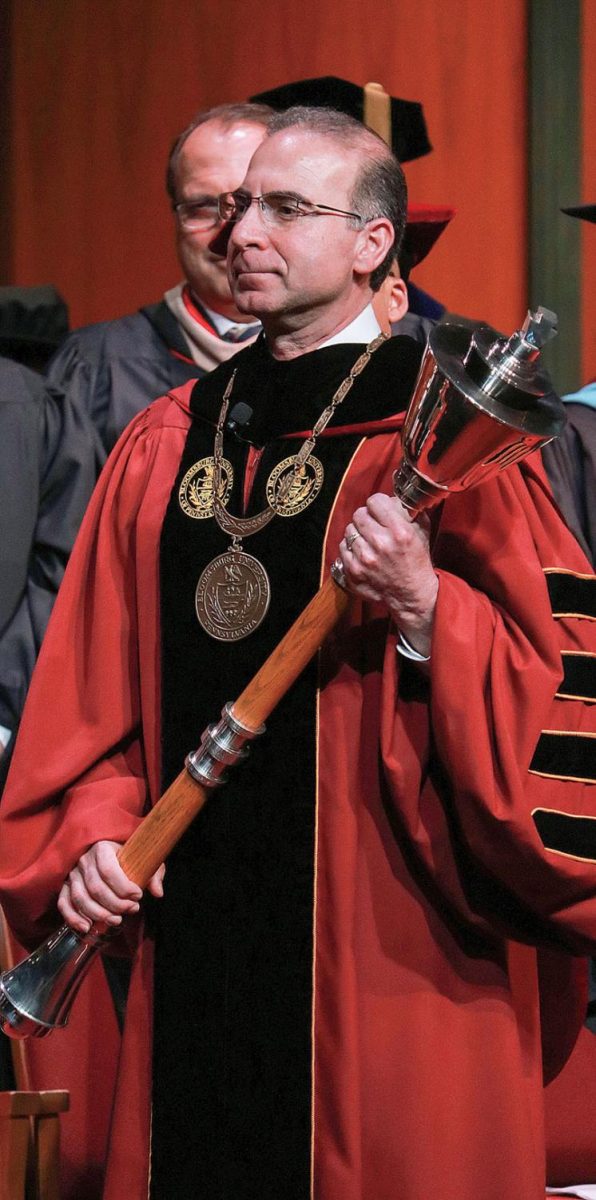Recently, America has been facing tragedy after tragedy. These tragedies come in the form of school shootings and mass slaughters in malls and movie theaters. The most recent event headlining every media outlet is the Las Vegas shooting.
News broadcasts and papers alike have been hosting special features on the shooting, mourning the victims and praising the brave heroes who showed their true colors that night. Every detail about this horrific event has been analyzed and released to the public: what hotel room the shooter was in, the artillery he had and the names and stories of the attendees of the concert.
Some details should never have been released: the name, face and background of the killer.
Releasing these details gives the killer an identity and actually ends up humanizing the monster who committed this heinous crime. Oftentimes, those who execute mass shootings want the recognition they know they will receive. American media outlets need to change how they report mass shootings. They should focus on the victims and the methods, but not on the person responsible for the madness.
News outlets have received much feedback in recent years on this topic. A USA Today article by Trevor Hughes called, “Voices: Should media withhold names of mass murderers?” published after the Aurora movie theater shooting says, “Tom and Caren Teves and their many supporters argue that continuing to publish [the Aurora shooter’s] name and picture in newspapers, to mention his name on the radio and to relentlessly show his face on television and websites make families victims yet again and give him the notoriety he has sought.”
The Teves are not alone in their thinking. A group that goes by #Nonotoriety has continued to put pressure on journalists to keep a suspect’s information away from the public. Hughes writes, “The #NoNotoriety campaign urges reporters to limit the use of killers’ and alleged killers’ names and photos, and organizers publicly shame journalists they feel violate their protocol.”
Not only does releasing this information romanticize the shooters’ actions, it can also create copycats and increase the rate of mass shootings as more people feel they can relate to the previous killer’s motives.
Max Kutner wrote “Mass Shootings and News Media: A Connection?” This article, published by Newsweek, reports how researchers believe mass killings can be contagious. Kutner states, “Using a mathematical contagion model typically applied to the spread of diseases, the study found that 30 percent of mass killings and 22 percent of school shootings appeared to have been inspired by previous events. One possible reason, says lead author Sherry Towers, is media coverage.”
The number of shootings and their news coverage in recent years has led America’s youth to become desensitized to the violence. Memes and jokes started flooding the internet just a day after the Las Vegas shooting. Many also see the tragedy as just another shooting rather than an individual event and give it no more attention than daily news.
These are just some of the many reasons journalists need to consider the details of their stories more carefully and truly think about their impact before publishing them in the future.
Taylor is a senior Mass Communications major. She is an International Peer Mentor and a Managing Editor at The Voice
















